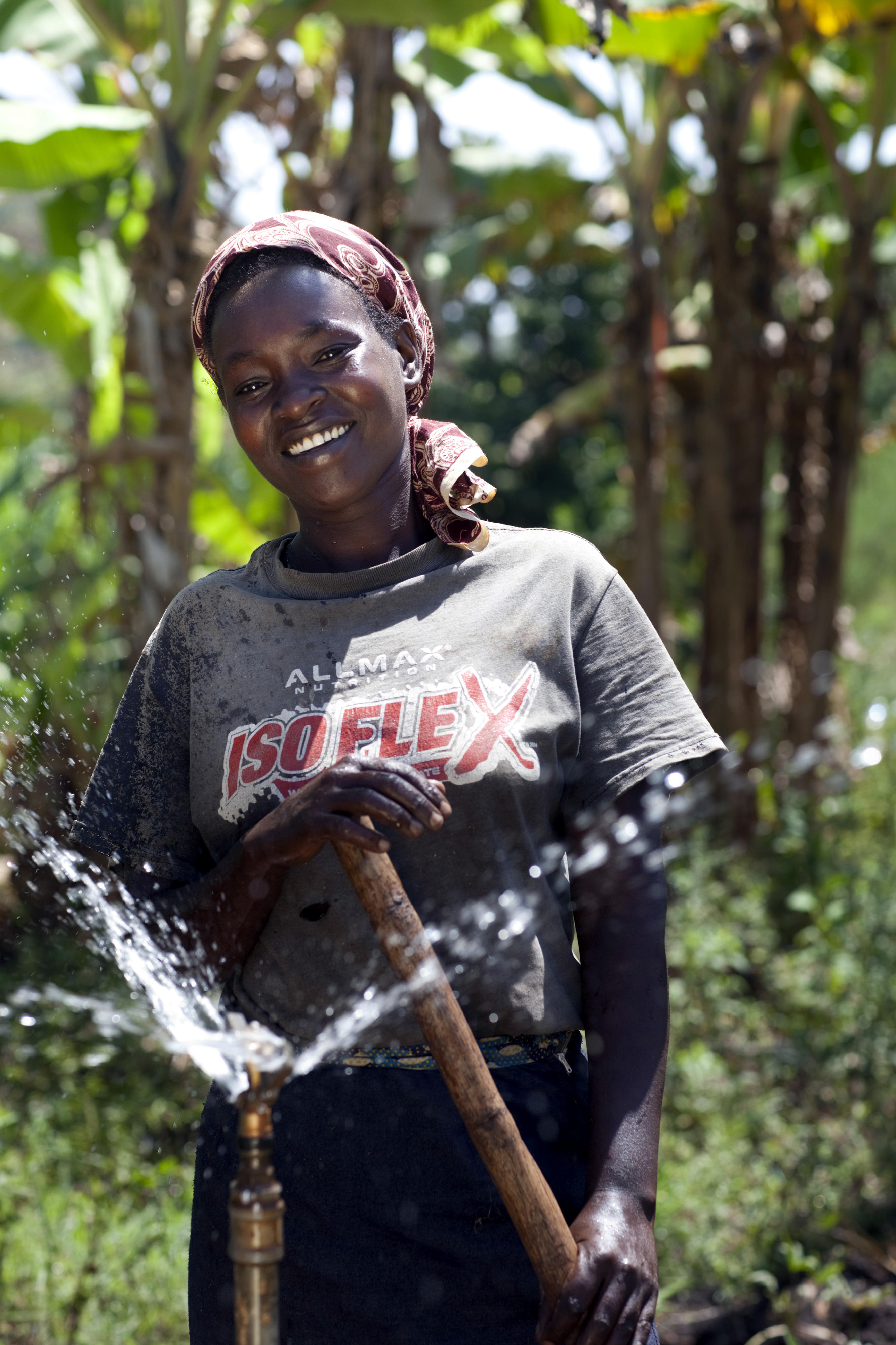Core area “Transformation of agricultural and food systems” Increasing youth employment, enhancing productivity, improving the food situation
Farmer at Mount Kenya
At present, agricultural yields in Kenya are relatively low. Farms, which are typically small, do not have enough inputs. They lack quality seeds and fertiliser, as well as capital and agricultural extension services.
As a result of climate change, weather patterns in Kenya are changing. Among other things, the rainy seasons are shifting, and rains in the arid regions have been below the long-term average (see also Social situation). Unsuitable production methods – for example with regard to tillage and use of fertiliser –, overgrazing and the cutting down of trees are leading to the loss of fertile land.
In principle, Kenya has a good basis for making greater use of its agricultural potential, thus improving the food situation for the people. Targeted reforestation, improved pasture and water management, and resource-friendly practices and conservation agriculture could help to increase agricultural production and make it more resilient to drought. Kenya also has a conducive investment climate, is politically stable, and has great potential for innovation. For instance, many digital applications for the agricultural sector are developed in Kenya.
German activities
Kenyan-German development cooperation is helping to create more jobs and better employment opportunities along the entire agricultural value chain, especially for young people and women. This is being done, for example, by offering training programmes and by helping young adults to start up their own businesses.
In response to the protracted drought, Germany will be increasing its activities in the northern part of the country in particular. Among other things, support will be provided for improved irrigation and for the creation of the necessary irrigation infrastructure.
Impacts
Over the last few years, some 1.1 million farmers in Kenya have benefitted from programmes implemented under German development cooperation. They have been assisted in increasing their yields, improving irrigation, and restoring degraded soils, and in developing business models for small-scale agricultural enterprises. More than 5,000 jobs in agricultural value chains have been supported or newly created. 60 per cent of the job holders in question have been young people. Rural road construction efforts have created temporary employment for up to 18,000 people, 40 per cent of them women.
As at: 02/05/2023
